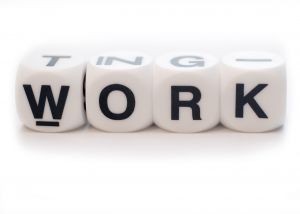Many people suffer from a disabling condition while they are still working. For some, it is degenerative disc or multiple discs in the spine that cause severe pain and numbness. Others will experience joint pain that makes it impossible to work in the same capacity as they could before the disability occurred. In some cases, the employee may suffer from a mental health issue that makes difficult to work a normal schedule.
 While the exact cause and type of disability may be different for everyone, the course of events is often quite similar. The employee can no longer do his or her job. This may mean coming late to work, missing work for medical appointments, or simply being unable to do the job physically. If the employee was suffering from an on-the-job injury or illness, he or she could apply for workers’ compensation benefits, and the employer would have to make reasonable accommodations so employee could still work in some capacity.
While the exact cause and type of disability may be different for everyone, the course of events is often quite similar. The employee can no longer do his or her job. This may mean coming late to work, missing work for medical appointments, or simply being unable to do the job physically. If the employee was suffering from an on-the-job injury or illness, he or she could apply for workers’ compensation benefits, and the employer would have to make reasonable accommodations so employee could still work in some capacity.
However, in the case of an employee who is disabled, and that disability is not work-related, there is a good possibility he or she will lose his or her job. While this may not be strictly legal, it happens all the time. At this point, the recently unemployed employee knows he or she is disabled and cannot reasonably do another job, so the logical thing seems to do is apply for Social Security Disability Insurance (SSDI) benefits.
SSDI benefits are designed for people who have built up a significant work history and have paid into the system through the payment of taxes. This is much like a private insurance policy where someone pays a premium and then can collect after filing a claim. As you pay taxes, some of the money goes to the Social Security Administration (SSA) funds. SSA has two funds, one for Social Security disability programs such as SSDI and Supplemental Security Income (SSI), and another fund for Social Security Retirement and Old Age programs. As you pay into the system, you get a certain number of quarterly credits that can be used to determine if you have worked long enough and recently enough to qualify for Social Security Disability Insurance benefits.
One of the issues, as discussed in a recent news feature from the Press Telegraph, is that it takes a considerable amount of time to complete the review process after submitting a claim for Social Security Disability Insurance benefits, and the review process can involve multiple appeals and review before an Administrative Law Judge (ALJ). For this reason, it is best to speak with an experienced Boston Social Security Disability Insurance (SSDI) attorney before taking any action, because this will often help get your application through the system and greatly increase in the chances of a successful award of benefits, as compared to the unrepresented claimant. The reason for this is because the system is administered in such a way that puts the unrepresented claimant at a significant disadvantage.
As a result of the delay, many claimants also want to apply for unemployment benefits after losing a job. The problem is this is that with SSDI, you are claiming you are too disabled work, and with unemployment benefits, you are claiming you are able to work and actively looking for a new job. This can be a problem, and you should speak with a disability attorney about this issue.
If you or a loved one is seeking Social Security Disability Insurance benefits in Boston, call for a free and confidential appointment at (617) 777-7777.
Additional Resources:
Can I Collect Unemployment While Waiting for Social Security Disability?, January 17, 2016, Press Telegraph, By Dana Christensen
More Blog Entries:
Social Security Disability Claims Process, Jan. 23, 2015, Boston Social Security Disability Insurance Lawyer Blog
 Massachusetts Social Security Disability Lawyers Blog
Massachusetts Social Security Disability Lawyers Blog

